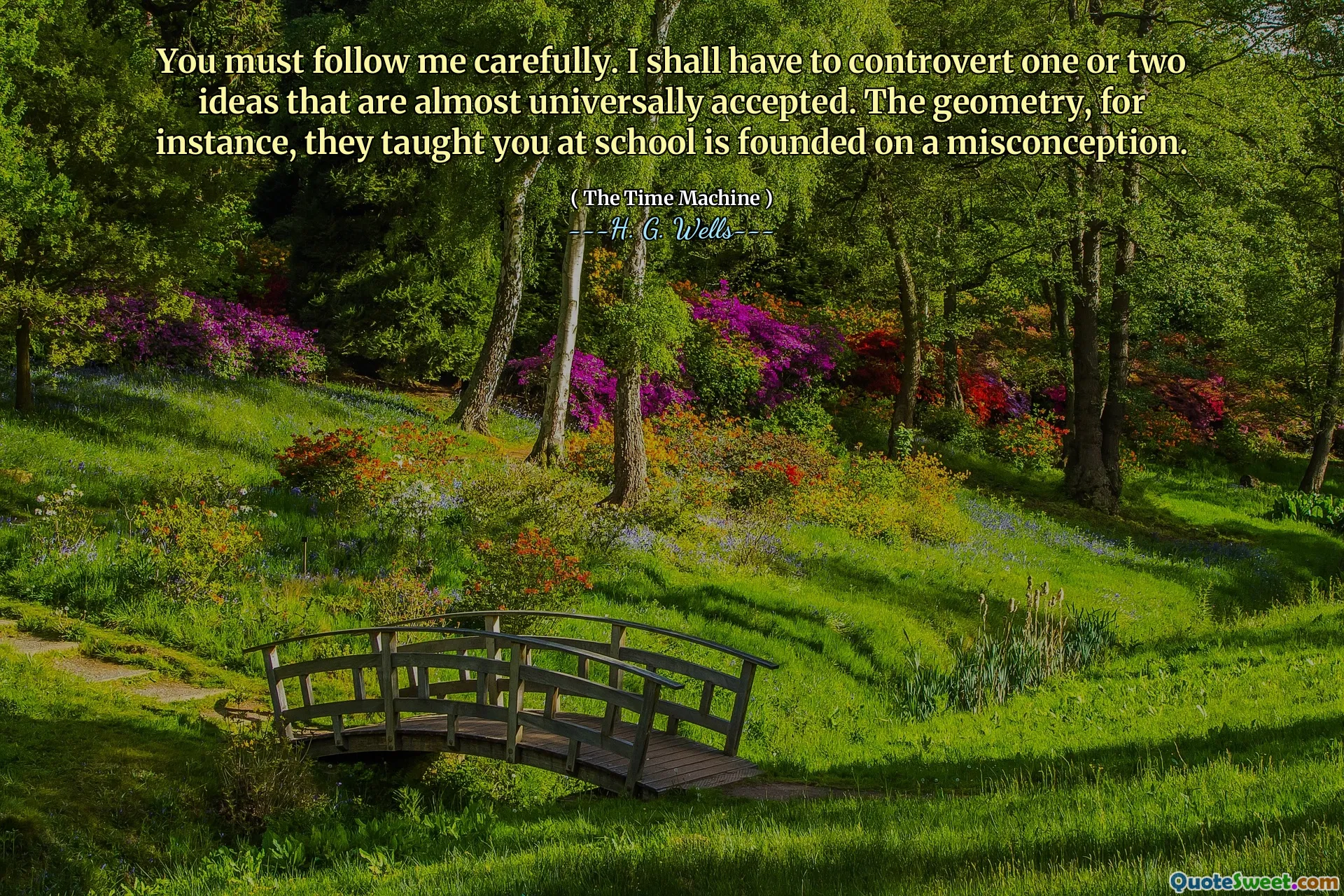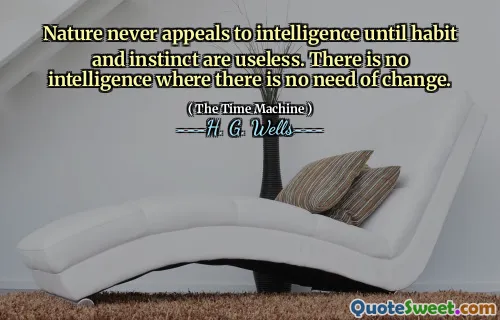
You must follow me carefully. I shall have to controvert one or two ideas that are almost universally accepted. The geometry, for instance, they taught you at school is founded on a misconception.
In "The Time Machine," author H.G. Wells challenges widely held beliefs and invites readers to reconsider what they have learned. He emphasizes the importance of critical thinking and the willingness to question accepted ideas, particularly in geometry, which he argues is based on misunderstandings. This sets the tone for an exploration of new concepts and perspectives throughout the narrative.
Wells encourages readers to engage deeply with the text and to be open to the possibility that commonly accepted notions may not always be accurate. By prompting us to re-evaluate these ideas, he cultivates an environment where innovation and imaginative thought can flourish, ultimately pushing the boundaries of conventional wisdom.











